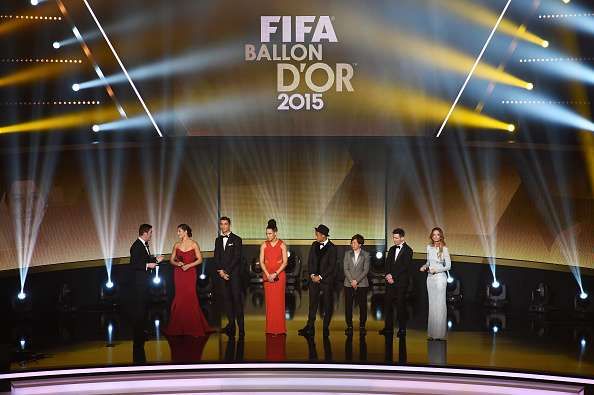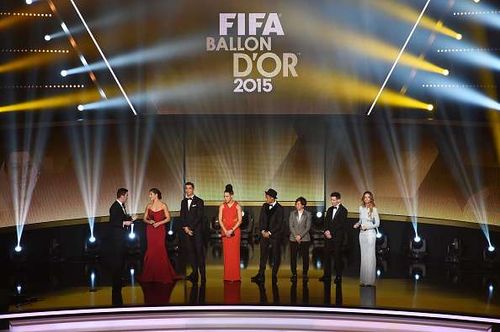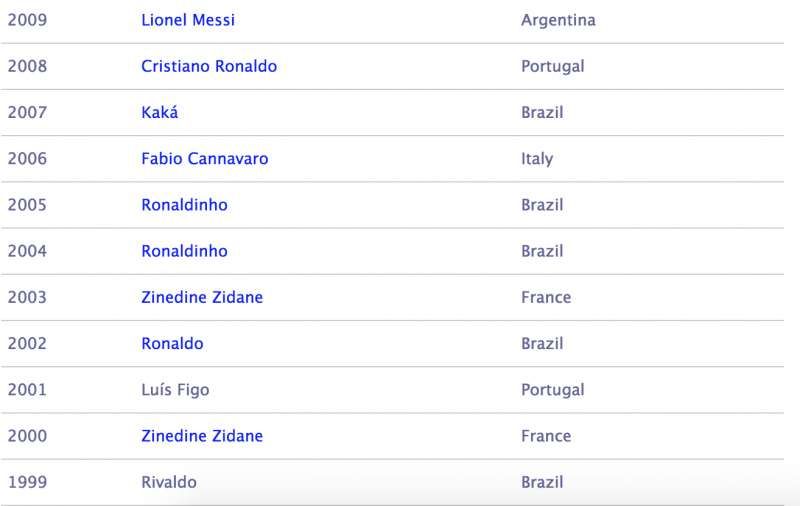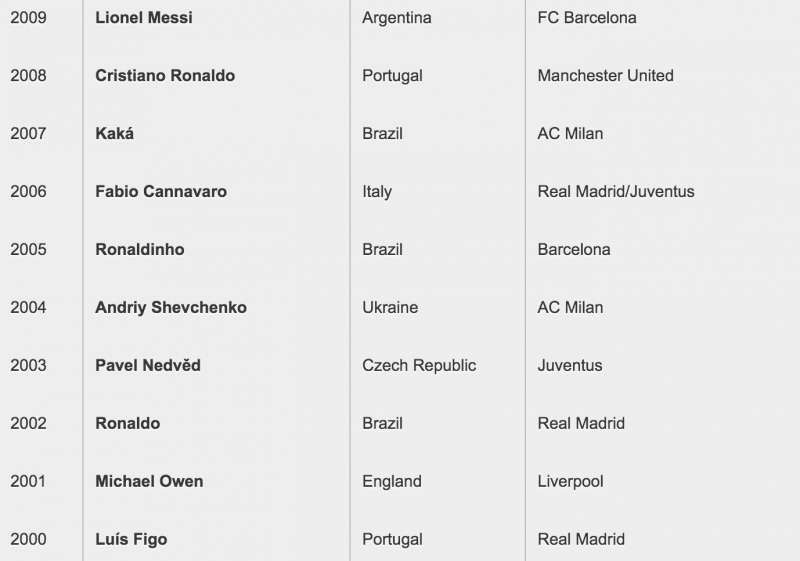
Presenting two major trophies for player of the year: A good or bad move?
We are into the final month of 2016 and this is where things get very intense for football fans. The Champions League Round of 16 draws, Boxing Day fixtures in the Premier League, the build up to the winter Transfer window and most important of all the build up to the Ballon d’Or and Best of FIFA awards are major features of December.
Over the last decade, Lionel Messi and Cristiano Ronaldo have made the Ballon d’Or their own with eight golden balls between them. For the last six years, FIFA hosted a grand ceremony in Zurich to present the Ballon d'Or to the best player of the year. However, things will be a bit different this time around.
With France Football, the original presenters of the Ballon d’Or trophy, terminating their association with FIFA, we will now resort to old ways where FIFA had a separate award for the best player of the year.
Also read: Cristiano Ronaldo, Lionel Messi and Antoine Griezmann announced as the three man shortlist for FIFA BEST player award
France Football will announce the Ballon d’Or winner reportedly on December 13th while FIFA will present the Player of the Year award in a separate ceremony in January. The winner of the Ballon d’Or will be solely decided by voting from selected journalists while the voting for FIFA’s award is a bit more complicated. Votes from national team coaches, captains, journalists and an online poll will contribute to the decision.
However, a big question arises from all the ruckus around two separate awards – does it make sense to have two awards? The reason FIFA merged their award with Ballon d’Or which was presented by France Football in the first place was because, since 2004, the winner of both the trophies were the same player.
The last time there were two different winners for the FIFA Player of the Year Award and the Ballon d’Or dates back to 2004 when Andriy Shevchenko beat Deco and Ronaldinho to the Ballon d’Or. On the other hand, Ronaldinho won the Player of the Year Award while Thierry Henry and Shevchenko finished in second and third respectively.
The Negatives
Presenting two separate awards for the best player of the year leads to a lack of uniformity. Winning only one of the two awards takes away the lustre from the actual achievement of winning the award.
While FIFA’s award would ideally be considered the most important one of the two because it is being presented by the highest governing body of the sport, historically Ballon d’Or has been there for much longer. FIFA’s awards came into existence only in the 1990's while the Ballon d'Or dates back to 1956. Hence, it's a matter of tradition and history that the Ballon d’Or stays as well.
Hence, FIFA faces an issue that other Sport governing bodies would not face. Besides, FIFA cannot order France Football to discontinue the award simply because that is against EU’s Law of Competition. It would be a breach of Article 102 of EU Law that would be an abuse of dominant position. Hence, FIFA is stuck with competition to see which award is more prestigious which would be harmful to the game.
With many fearing that the soul of football has been sold for corporate interests, the split yet again shows how the capitalistic world has its grip firmly on football. The appeal of the Ballon d’Or has massively risen since its partnership with FIFA and it has pleased major brands like Nike and Adidas who sponsor big names like Cristiano Ronaldo and Lionel Messi respectively.
The Positives, if at all any
Arsene Wenger once rightly said that the Ballon d’Or and other such individual awards encourage selfishness. As discussed above, with two awards, the glory of winning the award is not as much as it would be if it was a unified award. This could see football fans and players disregarding the trophy in the future.
Historically, neither the Ballon d’Or nor the FIFA Player of the Year trophy were as important as they are today. And going back to the old format could see both trophies lose their charm, hence loosening the grip that big corporations and brands have on the trophies.
Also read: Ballon d'Or: Not for defenders and goalkeepers
Over the last decade, all the winners of the Ballon d’Or have been players that have been great goalscorers or good in attack. Fabio Cannavaro was the last defender to win it. This mirrors the thoughts of corporations yet again. Big brands see goalscorers as a major selling point, and they aren’t wrong – Cristiano Ronaldo makes a fantastic poster boy.
Hence, with the split and different voting systems, we could see a few midfielders or defenders receive recognition in the future.
More Football news, transfer rumours, analysis and features at Sportskeeda.com. Also if you are attending a football game anywhere in the world and/or have a news tip for us drop us an email at football (at)sportskeeda (dot) com


